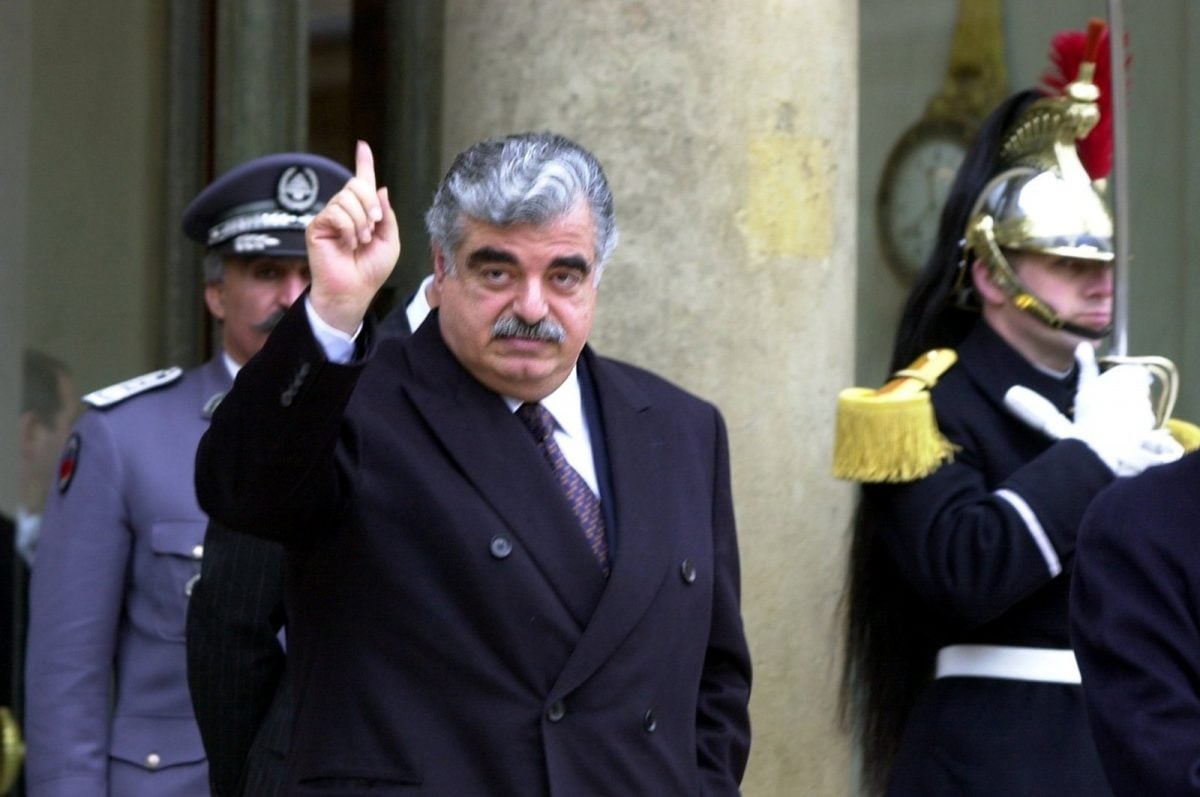LEIDSCHENDAM, Netherlands, (Reuters) – A U.N.-backed tribunal today convicted a member of Iran-backed Hezbollah of conspiring to kill former Lebanese Prime Minister Rafik al-Hariri in a 2005 bombing that set the stage for years of confrontation between Lebanon’s political forces.
Hariri, a Sunni Muslim billionaire, had close ties with the West and Sunni Gulf Arab allies, and was seen as a threat to Iranian and Syrian influence in Lebanon. He led efforts to rebuild Beirut following the 1975-1990 civil war.
Hariri’s son, Saad, like his slain father a former Lebanese prime minister, reacted to the verdict by vowing he would not rest until punishment is served, and it was time for the Iran-backed Hezbollah movement to assume responsibility.
“Hezbollah is the one that should make sacrifices today,” he said. “I repeat: we will not rest until punishment is served.”
Delivering their verdict over several hours, the judges said there was insufficient evidence against three other men charged as accomplices in the bombing and they were acquitted.
“The trial chamber is satisfied beyond a reasonable doubt that the Prosecution has proved the guilt of Salim Jamil Ayyash on all counts charged,” said Presiding Judge David Re.
“Mr Ayyash had a central role in the execution of the attack and directly contributed to it. Mr Ayyash intended to kill Mr. Hariri and had the required knowledge about the circumstances of the assassination mission, including that explosives were the means to be used.”
Prosecutors also established that Ayyash had affiliation with Hezbollah, the tribunal found in its 2,600-page ruling.
Ayyash and the other men were tried in absentia. Ayyash, formally convicted of a terrorist attack and the homicide of Hariri and 21 others, will be sentenced at later hearings.
The three other defendants are also alleged members of the Shi’ite Muslim group, but their role in the attack was not sufficiently established.
Judges said they found no evidence that the leadership of Hezbollah or the Syrian government had played a part in the attack that left 21 others dead, although it noted that days before he was slain, Hariri endorsed a call for Syria to end its then-occupation of Lebanon. Hezbollah has denied any involvement in the Feb. 14, 2005 bombing.
While the judges did not say who had planned the attack, they said it was “very likely” that the decision to kill him was only made after a Feb. 2, 2005, political meeting at which participants had agreed to call for the “immediate and total withdrawal of Syrian forces from Lebanon.”
The verdict comes as the Lebanese people are still reeling from the aftermath of a huge explosion in Beirut that killed 178 people this month and from a devastating economic meltdown.
POLARISED COUNTRY
Hariri’s assassination plunged Lebanon into what was then its worst crisis since the war, setting the stage for years of confrontation between rival political forces.
Hezbollah leader Sayyed Hassan Nasrallah said on Friday he was not concerned with the trial and that if any members of the group were convicted, it would stand by their innocence.
Beirut tour guide Nada Nammour, 54, speaking before the reading of the verdict began, said the 2005 bombing was a crime that should be punished. “Lebanon needs to see law and justice.”
The verdict may complicate a tumultuous situation after the Aug. 4 blast at Beirut port, where authorities say unsafely stored ammonium nitrate detonated, fuelling public outrage and leading to the government’s resignation.
Hariri’s killing removed a powerful Sunni leader and allowed the further political expansion of Shi’ite power led by Hezbollah and its allies in Lebanon.
JUSTICE 15 YEARS ON
The investigation and trial in absentia of the four alleged Hezbollah members has taken 15 years and cost roughly $1 billion. Sentencing will be carried out later though Ayyash could face up to life imprisonment.
DNA evidence showed that the blast that killed Hariri was carried out by a male suicide bomber who was never identified.
Prosecutors used cell phone records to argue the men on trial — Ayyash, Hassan Habib Merhi, Assad Hassan Sabra and Hussein Hassan Oneissi — carefully monitored Hariri’s movements in the months leading up to the attack to time it and to put forward a fake claim of responsibility as a diversion.
Court-appointed lawyers said there was no physical evidence linking the four to the crime and they should be acquitted.

